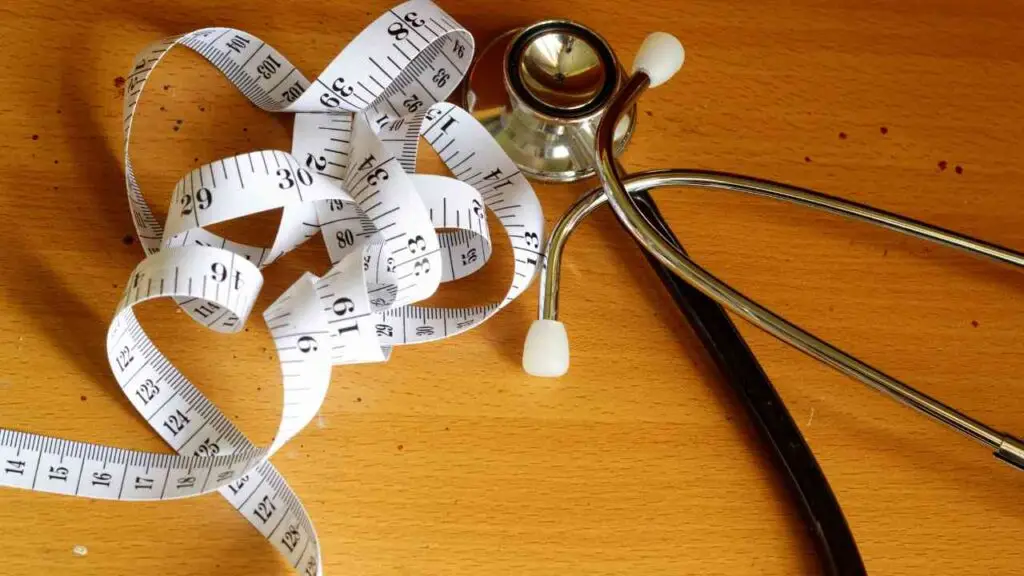Table of Contents
What happens if you stop taking fat burners? It’s essential to understand the potential consequences if you decide to stop taking fat burners. While these supplements may aid in weight loss and boosting metabolism, abruptly ceasing their use can lead to a range of outcomes. From slower metabolism and weight regain to decreased energy levels and potential nutritional deficiencies, understanding how your body reacts when you stop taking fat burners is crucial for making informed decisions about your health and wellness journey.
Key Takeaways:
- Metabolism slowdown: When you stop taking fat burners, your metabolism may slow down, making it harder to maintain weight loss.
- Decreased energy levels: Fat burners can boost energy, so stopping them may lead to feeling more tired or lethargic than usual.
- Possible weight gain: Without the effects of fat burners, you may be more likely to gain weight if your diet and exercise routine remain the same.
- Mood changes: Some fat burners contain ingredients that can impact mood, so stopping them may result in changes in mood or mental well-being.
- Potential health risks: Abruptly stopping fat burners may cause withdrawal symptoms or have negative effects on your overall health, so it’s best to consult a healthcare professional before discontinuing use.
Types of Fat Burners
Now, when it comes to fat burners, there are various types available in the market. Here are some common categories:
- Thermogenic Fat Burners
- Appetite Suppressants
- Carb Blockers
- Fat Blockers
Thou can find more detailed information on fat burner supplements at Fat Burner Supplements

Thermogenic Fat Burners
To kick things off, thermogenic fat burners work by increasing your body’s temperature, thereby boosting metabolism and burning more calories. This process is often achieved through ingredients like caffeine, green tea extract, and capsaicin.
These fat burners are popular for their ability to help with weight loss and increase energy levels, making them a go-to choice for many individuals looking to shed excess pounds. There are many other type of fat burners that offer different end results which you can read about here.
Appetite Suppressants
Burners that are designed as appetite suppressants work by reducing your cravings and overall calorie intake. This can be beneficial for those who struggle with overeating or snacking between meals, helping them stay on track with their weight loss goals.
A common ingredient in appetite suppressants is glucomannan, a dietary fiber that expands in your stomach and promotes a feeling of fullness, reducing the urge to eat.
Additionally, appetite suppressants can help individuals stay within their daily caloric limits, which is crucial for weight loss success. These supplements can be especially effective when combined with a healthy diet and regular exercise routine.
Carb Blockers
Blockers These carb blockers work by inhibiting the enzyme responsible for breaking down carbohydrates in the body, preventing their absorption. This results in fewer calories being absorbed from carb-rich meals, potentially aiding in weight loss.
Any individual looking to reduce their carb intake and manage their weight more effectively may benefit from incorporating carb blockers into their routine.
Furthermore, carb blockers can help prevent blood sugar spikes and crashes, making them a valuable tool for individuals with diabetes or those looking to stabilize their energy levels throughout the day.
Fat Blockers
Any fat blockers work by blocking the absorption of fat in the body, leading to fewer calories being absorbed from dietary fats. This can be particularly helpful for individuals who consume high-fat meals regularly and are looking to lower their calorie intake.
This type of fat burner may also encourage individuals to make healthier food choices, as they are less likely to experience the negative consequences of consuming large amounts of dietary fat. Check out our Fat Burner 101 for more guides.

The Body’s Response to Stopping Fat Burners
Withdrawal and Side Effects
After stopping fat burners, the body may experience withdrawal symptoms and side effects. These can include fatigue, irritability, headaches, and changes in appetite. It’s important to be aware of these potential effects and give your body time to readjust.
The sudden cessation of fat burners can disrupt the body’s natural processes and lead to imbalances. It’s crucial to listen to your body and seek professional advice if you experience severe or prolonged symptoms.
Metabolic Adjustments
The body’s metabolism may need time to recalibrate after stopping fat burners. This can result in changes in energy levels, hunger cues, and weight fluctuations. It’s important to support your metabolism through a balanced diet, regular exercise, and adequate rest.
When the body is no longer reliant on external fat burners, it can naturally regulate its metabolism and optimize fat burning processes. Adjusting to these changes may take time, but it ultimately allows for a healthier and more sustainable approach to weight management.
Step-by-Step Guide to Safely Discontinue Fat Burners
For a comprehensive guide on safely stopping the use of fat burners, it’s essential to understand the potential risks and best practices involved. If you’re wondering how long can you take fat burners, this step-by-step guide will help you navigate the process smoothly.
| Step 1 | Consulting with a Healthcare Professional |
| Step 2 | Tapering off Usage |
Consulting with a Healthcare Professional
Safely discontinuing fat burners begins with a consultation with a healthcare professional. Discuss your current fat burner use, any potential side effects you’re experiencing, and your desire to stop taking them. Your healthcare provider can offer personalized guidance based on your health status and weight loss goals.
It’s crucial to follow your healthcare provider’s recommendations when discontinuing fat burners to minimize any withdrawal symptoms and ensure a safe transition off the supplements.
Tapering off Usage
Tapering off fat burners involves gradually reducing your intake over time to allow your body to adjust. Suddenly stopping fat burners can lead to withdrawal symptoms such as fatigue, irritability, and cravings. Tapering off usage can help minimize these effects and make the transition smoother.
For instance, you may start by reducing your daily dose by half for a week before further decreasing the amount until you can safely discontinue use. This gradual approach can help your body adapt to the changes without experiencing severe withdrawal symptoms.
Alternatives and Tips for Natural Weight Management
An essential aspect of safely discontinuing fat burners is incorporating alternatives and natural weight management tips into your routine. Embracing a healthy lifestyle with a balanced diet and regular exercise can promote sustainable weight loss without relying on supplements. Some alternatives and tips to consider include:
- Eating a variety of nutritious foods
- Staying hydrated throughout the day
- Incorporating regular physical activity into your routine
Plus, incorporating these natural weight management strategies can help you achieve long-term success and improve your overall well-being.
Weighing the Factors
Your health is of utmost importance when it comes to stopping fat burners. Consult with a healthcare professional to discuss the potential risks and benefits of discontinuing the use of these supplements. It’s crucial to consider various factors before making a decision.
- Health
- Weight management
- Metabolism
- Energy levels
Any abrupt changes in your supplement routine can impact your body in different ways. Understanding the potential effects can help you make an informed choice.

Pros and Cons
To help you make a more informed decision, let’s break down the pros and cons of stopping fat burners.
| Pros | Cons |
| Restored natural metabolism | Possible weight gain |
| Reduced dependency on supplements | Decreased energy levels |
| Improved overall health | Slower fat loss |
Consider these factors carefully before making a decision.
Lifestyle and Dietary Factors to Consider
To ensure a smooth transition, it’s important to consider various lifestyle and dietary factors before discontinuing fat burners.
- Exercise routine
- Dietary habits
- Water intake
Though it may seem challenging, making gradual changes can help your body adjust better.
- Vitamins and minerals
- Protein intake
Thoroughly evaluating these factors can lead to a healthier transition.
Any sudden changes in your supplement routine can potentially impact your health and well-being. Consult with a professional before making any decisions to ensure a safe and effective transition.
Summing up
So what happens if you stop taking fat burners? It’s important to understand that stopping fat burners will not lead to immediate weight gain or negative health effects as long as you maintain a healthy diet and exercise routine. Your body may experience some adjustment period as it no longer has the supplement to rely on for energy and metabolism boost, so listen to your body and make sure to stay active and eat well. Remember, fat burners are just a small part of a larger picture of overall health and wellness, so focus on creating sustainable habits for long-term success.
FAQ
Q: What happens if you stop taking fat burners?
A: When you stop taking fat burners, your metabolism may slow down as your body adjusts to the change. This could result in potential weight gain if you do not make adjustments to your diet and exercise routine.
Q: Will I experience any side effects when I stop taking fat burners?
A: Some individuals may experience side effects such as fatigue, changes in appetite, or fluctuations in energy levels when they discontinue fat burner use. It’s important to consult with a healthcare professional if you have concerns about potential side effects.
Q: Should I gradually reduce my fat burner dosage or stop abruptly?
A: It is generally recommended to gradually reduce your fat burner dosage rather than stopping abruptly. This can help minimize any withdrawal symptoms or potential disruptions to your metabolism.
Q: How can I maintain my weight after stopping fat burners?
A: To maintain your weight after discontinuing fat burners, focus on eating a balanced diet, staying hydrated, getting regular exercise, and getting enough sleep. These healthy habits can help support your metabolism and overall well-being.
Q: Are there any alternatives to fat burners for weight management?
A: Yes, there are several alternatives to fat burners for weight management, such as following a nutritious diet, staying active, incorporating strength training, and practicing mindfulness or stress-reducing activities. It’s essential to find a sustainable approach that works best for your lifestyle and goals.







